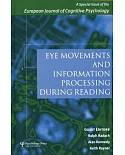From the ancients to the present day, the importance of sleep has seldom been disputed, but it has never had top billing in comparison to other components of healthy living. Now, however, it
seems that the combined critical mass of research, the needs of the population, and the shifting weight of professional interest is pushing sleep to the academic and research forefront. The
Oxford Handbook of Sleep and Sleep Disorders provides a comprehensive and state-of-the-art review of knowledge about current research and clinical developments in normal and abnormal
sleep.
The handbook comprises three sections: Section I covers the basics of normal sleep, its functions, and its relationships to emotions, cognitions, performance, psychopathology, and public health
and safety issues. Section II addresses abnormal sleep, including disorders like insomnia, parasomnias, circadian rhythm disorders, and sleep apnea. An informed classification of sleep/wake
disorders is presented along with a protocol for assessing sleep-wake complaints and evidence-based treatment options. Section III provides a developmental perspective on sleep and sleep
problems in childhood, adolescence, and in late life, and a discussion of sleep disturbances in selected special populations.
Written by eminent international experts from diverse fields of study and clinical backgrounds, this handbook is a comprehensive resource that will meet the needs of clinicians, researchers,
and trainees with an interest in the multidisciplinary and emerging field of sleep medicine.





















